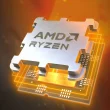In a surprising move, Meta Platforms Inc. has reportedly decided to shutter Ready at Dawn, a prominent game development studio known for its innovative contributions to the virtual reality (VR) and gaming landscapes. Founded in 2003 and acquired by Meta in 2020, Ready at Dawn has made a significant impact with titles like “The Order: 1886” and “Lone Echo,” a critically acclaimed VR game that pushed the boundaries of immersive gaming.
The decision to shut down Ready at Dawn comes amid a broader reassessment of Meta’s investments and strategic focus. As the tech giant continues to navigate the complexities of the VR and AR markets, it appears to be realigning its resources and priorities. The gaming industry, with its rapid technological advancements and shifting consumer preferences, often requires agile adaptation, and Meta’s recent moves reflect this reality.
The concept of the Metaverse, once hailed as the next frontier of digital interaction, has begun to shift in ways that suggest its end as we once imagined it. Initially, the Metaverse promised a seamless integration of virtual and physical worlds, where users could interact in a shared digital space with limitless possibilities. This vision sparked enthusiasm and investment, with tech giants and startups alike racing to create immersive environments, virtual real estate, and complex ecosystems.
The closure of Ready at Dawn also underscores the inherent risks and challenges associated with acquiring and integrating game studios into a larger corporate structure. Creative studios like Ready at Dawn thrive on a certain degree of autonomy and innovation, which can sometimes be at odds with the larger strategic imperatives of a tech giant like Meta
For employees and fans of Ready at Dawn, the news of the closure is undoubtedly disheartening. The studio’s work has left a lasting legacy in the VR gaming community, and its departure marks the end of an era for many who have admired its contributions.
Meta’s move to shut down Ready at Dawn also raises questions about the future direction of its VR and AR ventures. The company has been investing heavily in the metaverse and immersive technologies, and the closure of one of its key studios could indicate a shift in how it plans to achieve its ambitions.
The ambitious technical infrastructure required to support a fully realised Metaverse has proven more complex and costly than Mark Zuckeberg initially anticipated. Issues like latency, bandwidth limitations, and hardware constraints have impeded progress, resulting in a fragmented experience rather than the unified digital utopia originally envisioned.








